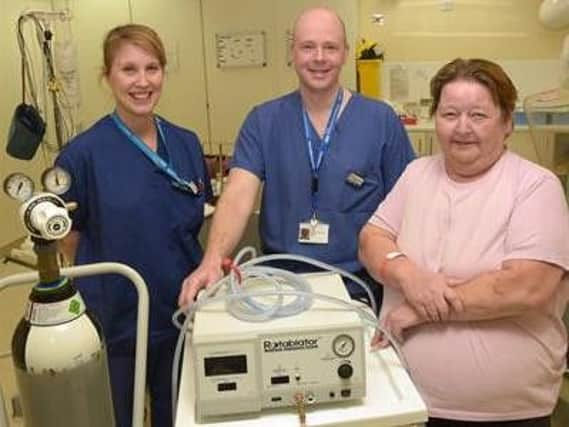Northampton hospital's new diamond-tipped drill blasts calcium off arteries at 170,000rpm


The specialist surgery, known as "rotablation", uses a 2mm diamond-dust tipped burr rotating at 170,000rpm to blast through coronary lesions.
It opens up new options for patients who would otherwise need open-heart surgery.
Advertisement
Hide AdAdvertisement
Hide AdDr David Sharman, consultant cardiologist at Northampton General Hospital, said: "Most patients who have blocked arteries are able to have a routine coronary intervention, which means using a needle to go into the body and place a balloon into the narrowed artery to squeeze it open before placing a stent across the narrowing to keep it wide open.
"But a small number of patients cannot be treated with this routine approach as they have a high build-up of calcium that prevents balloon expansion and stent placement.
"Previously our patients would have had to either travel to Oxford or Harefield hospital for the procedure. It’s great news for our patients and their families that we can now provide this service here in Northampton."
The "drill" is led up to the patient's heart through an artery in their leg and the procedure takes around an hour under local anaesthetic.
Advertisement
Hide AdAdvertisement
Hide AdCoronary artery disease is the biggest killer in the UK, and a major cause of chronic illness. A narrowed artery in the body raises the risk of stroke, while a narrowed artery in the heart causes pain and could lead to a heart attack.